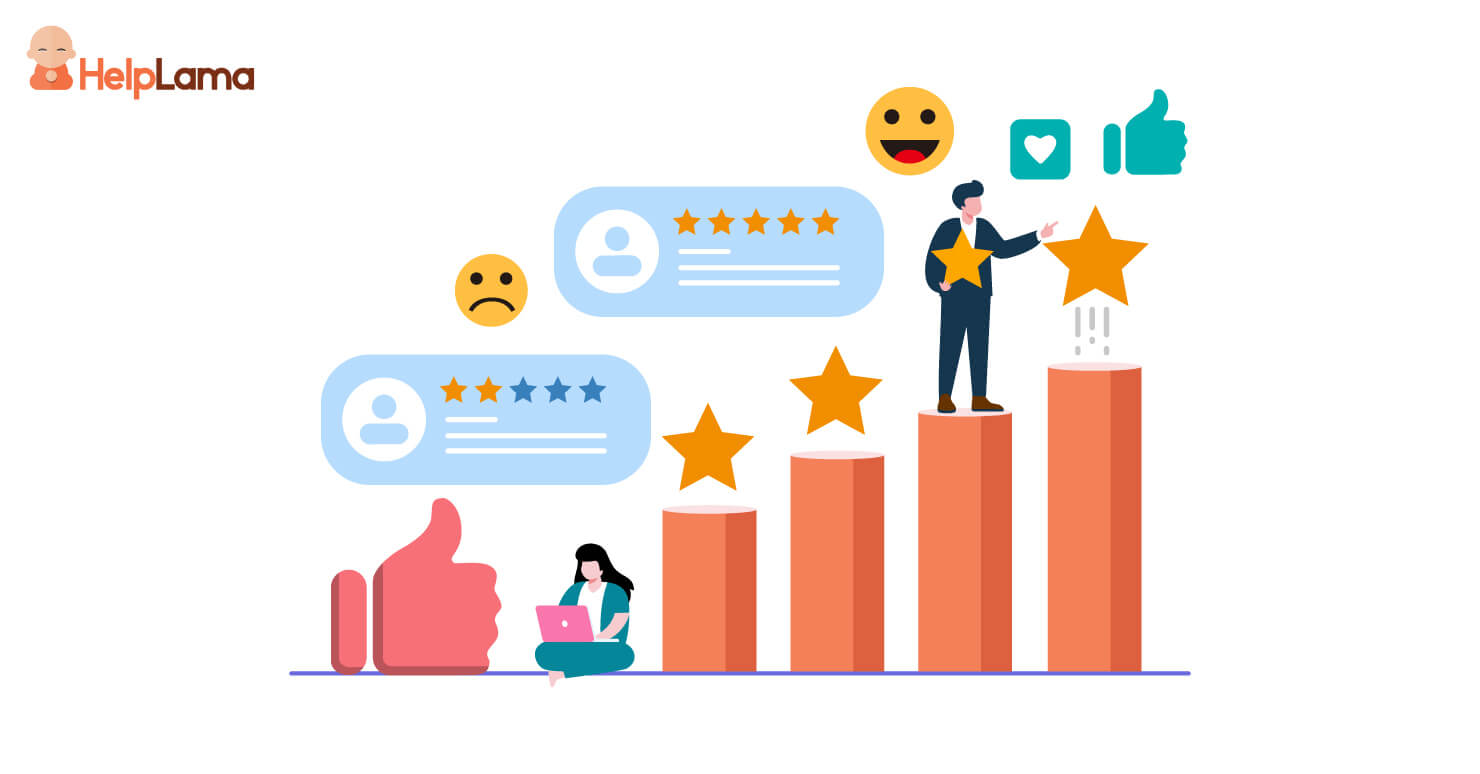In today’s digital age, your online reputation can make or break your success. Think about it: when was the last time you made a purchase without checking reviews first? A solid online reputation not only attracts customers but also builds trust and credibility. In this article, we’ll dive into how you can effectively build and manage your online reputation to ensure that you shine in the crowded digital marketplace.
Understanding Online Reputation
Definition of Online Reputation
Online reputation refers to how your business is perceived by others on the internet. It encompasses everything from customer reviews to social media interactions. In short, it’s the collective opinion of your brand online.
The Impact of Online Reputation on Businesses
A positive online reputation can lead to increased sales, while a negative one can deter potential customers. Brands with strong reputations are more likely to gain customer loyalty and higher engagement rates.
Why Online Reputation Matters
Trust and Credibility
Consumers today are savvier than ever. They seek transparency and authenticity in brands. A strong online reputation fosters trust, making it easier for customers to choose you over competitors.
Influence on Consumer Behavior
Online reviews and testimonials heavily influence consumer decisions. A single negative review can lead to lost sales, while positive feedback can drive more business your way.
Effects on SEO and Visibility
Search engines prioritize businesses with positive reputations. This means that your online reputation can directly impact your visibility on search engine results pages (SERPs).
Assessing Your Current Online Reputation
Tools for Monitoring Your Online Presence
Use tools like Google Alerts, SEMrush, and Brand24 to keep track of mentions and reviews related to your brand. These resources can help you stay informed about what’s being said about you online.
Analyzing Social Media Mentions
Regularly check your social media platforms for comments and messages. This is a crucial aspect of managing your online reputation, as it allows you to engage directly with your audience.
Evaluating Online Reviews
Take the time to read through reviews on platforms like Google, Yelp, and TripAdvisor. Understanding your strengths and weaknesses is key to improving your online image.
Creating a Strong Online Presence
Building a Professional Website
Your website is often the first impression potential customers have of your brand. Make sure it’s user-friendly, visually appealing, and contains up-to-date information.
Utilizing Social Media Platforms
Engage with your audience on social media. Share relevant content, respond to comments, and showcase your brand’s personality. This builds rapport and helps you stay top of mind.
Engaging in Content Marketing
Creating valuable content positions you as an authority in your field. Whether it’s blog posts, infographics, or videos, quality content keeps your audience engaged and informed.
Managing Customer Reviews
Importance of Customer Feedback
Customer reviews are invaluable. They provide insight into what your audience appreciates and what could be improved.
Responding to Positive Reviews
Always take a moment to thank customers for their positive feedback. This encourages further engagement and shows that you value their opinion.
Handling Negative Feedback Gracefully
Negative reviews are inevitable. Instead of ignoring them, respond calmly and professionally. Address concerns and offer solutions when possible.
Engaging with Your Audience
The Role of Communication
Keep the lines of communication open. Engage with your audience through comments, messages, and social media posts to foster a sense of community.
Building Community Through Engagement
Create a space for your audience to interact with you and each other. This not only enhances customer loyalty but also helps improve your online reputation.
Using Feedback to Improve Services
Use the feedback you receive to make necessary changes. This shows your audience that you care and are committed to improvement.
Content Creation Strategies
Blogging for Reputation Building
Start a blog that provides valuable insights and tips related to your industry. This can help establish your brand as a thought leader.
Video Content and Its Benefits
Video content is highly engaging and shareable. Consider creating tutorials, product demos, or behind-the-scenes looks at your business.
Guest Posting on Reputable Sites
Writing guest posts for reputable sites can boost your visibility and credibility. Make sure to choose platforms that align with your brand values.
Leveraging Influencers
Collaborating with Influencers
Partnering with influencers can significantly enhance your online reputation. They can introduce your brand to a broader audience and lend credibility.
How Influencers Can Enhance Your Reputation
Influencers often have established trust with their audience. When they endorse your brand, it can lead to increased interest and trust among potential customers.
Search Engine Optimization (SEO) for Reputation
Importance of SEO in Reputation Management
A well-optimized website and content can improve your visibility in search results, which is essential for reputation management.
Techniques for Improving Search Rankings
Utilize keywords effectively, create high-quality backlinks, and regularly update your content to maintain high search rankings.
Staying Proactive
Regular Monitoring of Online Presence
Make it a habit to regularly check your online presence. This allows you to address any issues before they escalate.
Updating and Refreshing Content
Keep your content fresh and relevant. Regular updates signal to both your audience and search engines that you are active and engaged.
Handling a Crisis
Developing a Crisis Management Plan
Be prepared for potential crises by having a plan in place. This should outline how to respond to negative publicity or reviews.
Strategies for Rebuilding Trust
After a crisis, transparency and consistent communication are vital. Show your audience that you are taking steps to improve and regain their trust.
Measuring Success
Key Performance Indicators (KPIs) for Online Reputation
Track metrics like customer feedback, review ratings, and social media engagement to measure the success of your reputation management efforts.
Analyzing Data and Making Adjustments
Regularly analyze your data to identify trends and areas for improvement. This will help you stay ahead and continuously enhance your online reputation.
The Future of Online Reputation
Emerging Trends in Reputation Management
Stay informed about trends like the rise of AI in customer service and the growing importance of online reviews in purchasing decisions.
Preparing for Changes in Online Behavior
As online behavior evolves, so should your strategies. Be adaptable and ready to embrace new tools and techniques.
Conclusion
Building and maintaining a strong online reputation is crucial in today’s digital world. By implementing the strategies outlined above, you can enhance your brand’s image, attract more customers, and ensure long-term success. Remember, your online reputation is not just a reflection of your business—it’s a critical asset that deserves your attention.
FAQs
What is online reputation?
Online reputation is how a brand is perceived on the internet, including reviews, social media mentions, and overall digital presence.
How long does it take to build an online reputation?
Building a positive online reputation can take time, typically several months, depending on your efforts and strategies.
What is online reputation, and why is it important?
Online reputation refers to the perception people have about your business, brand, or personal identity on the internet. It’s crucial because it influences how others trust and engage with you. A positive online reputation can attract more customers, build credibility, and open up new opportunities, while a negative one can harm your image and impact your business or personal success.
How can I improve my online reputation?
Improving your online reputation involves several strategies, such as:
Encouraging positive customer reviews
Engaging actively on social media
Publishing high-quality content that reflects your expertise
Addressing negative feedback professionally
Monitoring your online presence regularly
How do online reviews impact my online reputation?
Online reviews play a huge role in shaping your reputation. Positive reviews build trust and encourage new customers, while negative reviews can deter potential clients. It’s essential to respond to reviews—whether good or bad—politely and professionally to show you care about customer feedback.
How do I handle negative reviews or comments?
Dealing with negative reviews requires a calm and professional approach. Always respond to the customer in a timely and polite manner, offer a solution, and, where possible, take the conversation offline. This demonstrates that you are proactive in resolving issues, which can mitigate the impact of the negative feedback.
How often should I monitor my online reputation?
It’s important to monitor your online reputation regularly. Setting up alerts or using online reputation management tools can help you stay updated whenever new reviews, mentions, or articles about your brand appear. Checking on your reputation at least weekly is recommended to address any potential issues quickly.
Can social media affect my online reputation?
Yes, social media can significantly impact your online reputation. Posts, shares, and comments made by your business or about your business influence how people perceive you. Consistent, positive engagement with your audience on social media platforms can boost your reputation, while neglect or inappropriate content can harm it.
What role does content creation play in building an online reputation?
Content creation is a key component of building your online reputation. Publishing valuable, informative, and engaging content positions you as an authority in your industry, increases visibility, and builds trust with your audience. Regularly sharing blog posts, videos, and social media updates can enhance your online presence and reputation.
Is it possible to recover from a damaged online reputation?
Yes, it is possible to recover from a damaged online reputation, but it takes time and effort. You’ll need to address the underlying issues, improve customer service, respond to negative feedback professionally, and focus on generating positive content and reviews. Consistently working on reputation management can eventually restore trust and rebuild your image.


